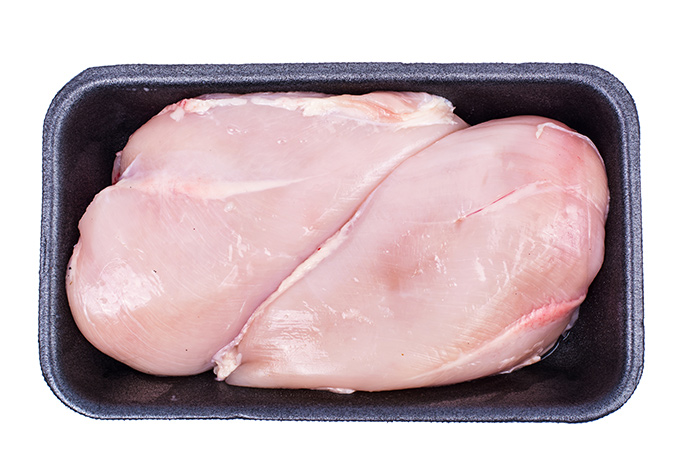In February 2019, when the CDC ended its investigation of a deadly Salmonella Infantis outbreak linked to raw chicken products, it added an unusual note at the top of its final report. “This investigation is over. Illnesses could continue because this Salmonella strain appears to be widespread in the chicken industry,” it read in part.
Two and a half years later, the reality of that statement came into focus when an investigative report from ProPublica revealed that the outbreak, linked to a multidrug-resistant strain of Salmonella Infantis, has never ended.
Robert Tauxe director of the Center for Disease Control and Prevention’s (CDC’s) Division of Foodborne, Waterborne, and Environmental Diseases, told ProPublica that the agency receives dozens of reports of illness linked to this strain each month. “Many people are still becoming ill, and some of them gravely ill.”
The CDC uses a multiplier for Salmonella of 29 to account for undiagnosed infections. One internal CDC document that the ProPublica team found estimated that this single strain of Salmonella Infantis is responsible for 11,000-17,000 illnesses per year.
And the strain is still regularly turning up in chicken.
On average, USDA inspectors have found this strain on poultry products at least twice a day so far this year, according to ProPublica. And because USDA lacks enforcement power these products contaminated with multidrug-resistant Salmonella head directly to store shelves, restaurants, and foodservice operations.
 Widespread Contamination of Chicken
Widespread Contamination of Chicken
When the CDC issued its final report on the raw chicken outbreak in February 2019, 129 cases had been confirmed and one person had died. The illnesses were reported from January 8, 2018, to January 27, 2019.
The CDC stated that during its collaborative investigation of the outbreak with the USDA, the agencies were unable to pinpoint a source of the outbreak because they were finding the strain everywhere. The multidrug-resistant outbreak strain turned up in 76 samples collected from live chickens, raw chicken pet food, and from chicken processing facilities.
During interviews with health officials, outbreak patients named multiple brands of chicken they had eaten before becoming they became sick. They also named multiple stores where they purchased the chicken products. The names of these companies were never disclosed.
But according to ProPublica, patients named one brand more than any other, Perdue Farms. And, the report revealed, health officials in Pennsylvania and Minnesota found the outbreak strain in packages of Perdue wings, thighs, and drumsticks purchased from three different grocery stores.
A Review of Salmonella Sampling Data
Food Poisoning Bulletin reviewed USDA Salmonella sampling data going back to 2015. The agency divides this information into two groups, whole carcasses, and chicken parts. In both categories, Perdue has far more positive samples for the specific outbreak strain, Salmonella Infantis Pattern 1080, than any other company.
Between 2015 and June 2021, the outbreak strain appeared on samples of chicken parts on at least 75 sampling days. Twenty-two of them were produced by Perdue Foods. No other company had double digits.
The results were similar for whole carcasses. Seven of the 25 positive tests for the outbreak strain came from Perdue products. That’s more than twice the number for companies in second place including Tyson which had three. For chicken parts and whole birds combined, 29 percent of the samples positive for the outbreak strain were Perdue products.
And it wasn’t just one problematic Perdue slaughterhouse. Chicken products produced at seven Perdue processing facilities tested positive for Salmonella Infantis Pattern1080. These plants are located in Delaware, Kentucky, Maryland, Tennessee, Virginia, and in two North Carolina cities.
Finally, it’s worth noting that while Salmonella Infantis Pattern1080 is the only outbreak strain currently linked to an ongoing outbreak it’s not the only multidrug-resistant Salmonella Infantis strain. For example, of the 193 Perdue chicken samples that tested positive for some type of Salmonella Infantis all of them were resistant to at least one antibiotic. And all but five were multidrug-resistant.
USDA Deputy Under Secretary Sandra Eskin said recently that it’s time for the agency to rethink its approach to controlling Salmonella in poultry. “Reforms are long overdue and urgently needed,” said Food Safety Attorney Fred Pritzker. “I’m not sure that people understand the serious illness that multidrug-resistant strains like Salmonella Infantis Pattern 1080 can cause.”
If you have been sickened by chicken that was contaminated with Salmonella Infantis and would like a free consultation with a Salmonella lawyer, please contact the Pritzker Hageman Salmonella Legal Team. Our attorneys have represented clients in every major Salmonella outbreak in the U.S. You can reach us by calling 1-888-377-8900, sending a text to 612-261-0856, or completing the form below. There is no obligation and we don’t get paid unless we win.
.
 Widespread Contamination of Chicken
Widespread Contamination of Chicken